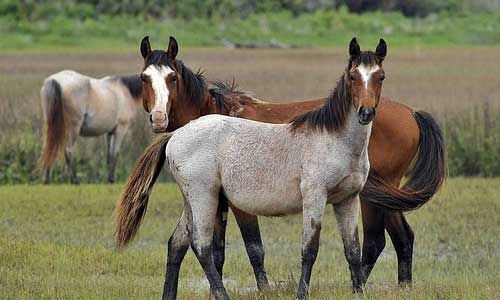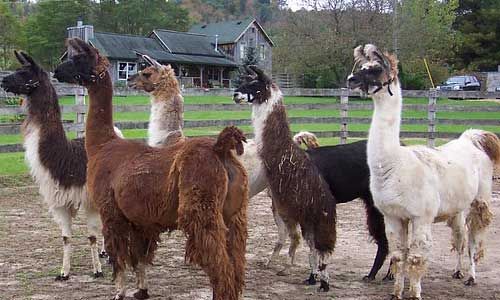Finding a Reputable Breeder
With thousands of unwanted dogs living in shelters and desperately looking for new homes, we highly recommend that you at least consider adopting a puppy or adult dog. You will be able to find details of your local shelters and rescue centers online. However, if your heart is set on a purebred puppy then the very first thing you should do is find a reputable breeder.
Unfortunately, there are many people out there who view breeding purely as a source of income and they have very little concern for either the current or future welfare of their puppies. However, by asking the right questions and making some careful observations it is possible to distinguish between them, and knowledgeable, professional breeders. Here is our guide to helping you find a reputable breeder for your pet.
Where to start
Looking online is an obvious and tempting place to start looking for breeders, but unless they have been personally recommended or are affiliated with recognized kennel clubs then you could potentially waste time looking at unscrupulous breeders. Instead, consider asking your local vet, visit a dog show or look online at The American Kennel Club who offer breeder referrals. Of course there is no substitute for reliable personal recommendations either, so if you know someone with a fantastic puppy, ask them which breeder they used.
Looking online is an obvious and tempting place to start looking for breeders, but unless they have been personally recommended or are affiliated with recognized kennel clubs then you could potentially waste time looking at unscrupulous breeders. Instead, consider asking your local vet, visit a dog show or look online at The American Kennel Club who offer breeder referrals. Of course there is no substitute for reliable personal recommendations either, so if you know someone with a fantastic puppy, ask them which breeder they used.
Questions to ask the breeder
There are a number of questions that you can ask breeders which will help you identify whether they have the best interests of their animals at heart. The key things you should be asking are:
How long have they been breeding for?
Most serious breeders have been dedicated to the practice for some time, and there is little substitute for experience. The longer someone has been breeding then the more knowledgeable they will be.
How old is the mother of the litter?
A responsible breeder will not breed an animal until it reaches full maturity, and for dogs this should be at least two years old.
How many litters do you raise per year?
Responsible breeders will ensure that female dogs are bred no more than once per year, and typically will breed no more than two, maybe three litters per year so they can ensure they have enough time to dedicate to raising them properly. Any more than that is indicative of a commercial operation or puppy farming.
Do you only breed one type of dog?
Again, breeding more than one variety of dog could be indicative of puppy farming.
Where do the puppies live?
The very best environment for a puppy to be raised in is a regular household. This ensures that they get used to regular visitors, children and other animals, meaning that they are being socialized from birth. A puppy that is raised in a family environment is more likely to be friendly and relaxed. Puppies that have been raised isolated from humans are prone to anxiety, shyness or aggression.
How often are the puppies handled?
Again, handling is a big part of socializing your puppy and a reputable breeder should ensure that their puppies are handled regularly by a variety of people.
Can I meet the parents?
While many breeders use stud dogs, meaning that the father is often not available for viewing, any reputable breeder will be able to give you plenty of information about the physical and temperamental characteristics of him, as well as full health information.
The mother should always be available for viewing alongside her puppies. While it is understandable that she may be wary, she should still be attentive and friendly towards you. The mothers’ health information should also be readily available, and you can gauge her size and temperament for an idea as to how the pups may behave in maturity.
Can I speak to people who have previously had puppies from you?
Any good breeder will be happy to provide you with references of successfully homed pups. They may even go so far as to refer you to other breeders.
Can I have copies of health clearances?
If applicable, certain breeds may be tested for specific genetic conditions and given a health clearance certificate by an independent agency, such as the Canine Eye Registration Foundation. These should be made available to you. Responsible breeders will also ensure that their pups have flea prevention treatment, worm treatment and applicable vaccinations before letting them go to their new homes.
Other signs of a good breeder:
- Reputable breeders will likely ask you to sign a spay/neuter contract for your pet which promises that you will take the necessary steps to avoid breeding and subsequent addition to the huge overpopulation of dogs.
- The environment is clean, has a neutral odor and the animals are supplied with fresh water, beds and toys.
- Enthusiastic breeders often participate in dog shows and competitions.
- A reputable breeder will provide you with as much ongoing support as you need either by email, phone or occasionally in person. If for any reason you are unable to continue to care for the dog, a responsible breeder should always offer to take them back to ensure that they are well cared for until they can be re-homed.
- The breeder is honest about any drawbacks of the breed you are interested in. For example if the breed is particularly noisy, or prone to specific health problems.
- The breeder asks you lots of questions. For a reputable and responsible breeder the interview goes both ways. They have the pup’s best interests at heart and want to ensure that they go to loving homes that are prepared for the commitment they require. It has been known for breeders to refuse to sell pups to people that they feel cannot provide a suitable home for their animals.
We hope that you will find this article helpful in sourcing a reputable breeder for your family pet.











